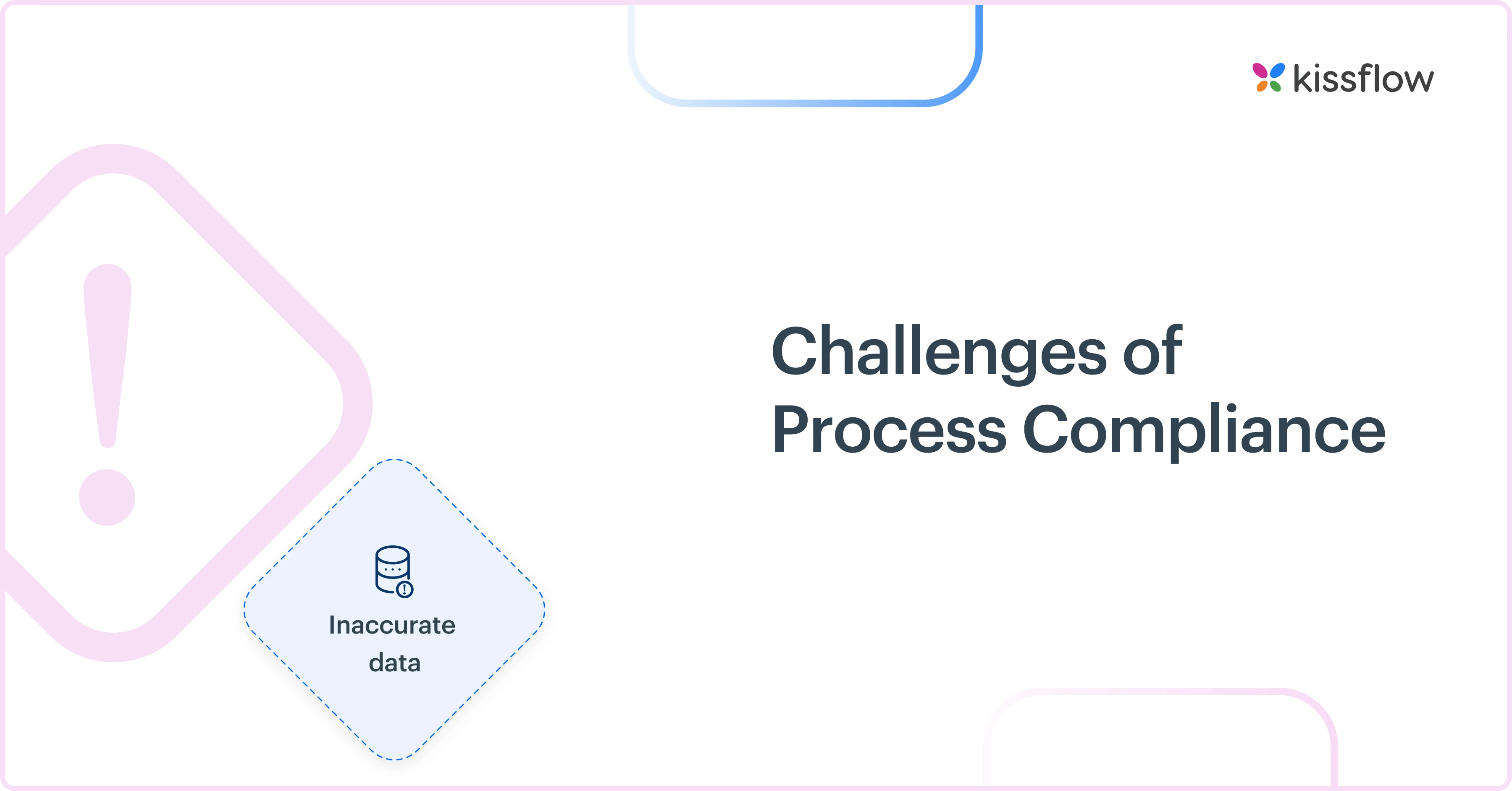Today, more and more enterprises are implementing business process compliance to achieve efficiency and adhere to internal policies, industry standards, and legal regulations.
CIOs undertaking massive digital transformation initiatives understand that creating business processes is not enough. You need to monitor processes to ensure they are running as expected constantly. That’s where business process compliance comes in.
The ultimate goal of process compliance is to ensure that an organization’s business processes and day-to-day operations follow the laid out set of norms.
What is Business Process Compliance?
Business process compliance refers to the process of adhering to rules, policies, standards, and regulations in an organization’s day-to-day operations.
In most industries, there are rules and guidelines that businesses that operate in the industry must always follow. These are clearly stated laws and not complying with them may result in stiff penalties for the organization and result in a loss of business.
Some rules may also be internal guidelines that serve as standard operating protocols defined by the brand and help guide employees on how to handle specific duties, customer interactions, and other tasks or processes.
Learn More: What is Business Process Management
Importance of Process Compliance
It might be difficult to get your organization to always play by the rules, but staying on top of internal and external regulations that guide business processes has become quite critical for every business. Some of the reasons why process compliance is very important to include:
Compliance is needed to build and maintain trust
To build trust with the various individuals and groups an organization interacts with, they need to show commitment and responsibility. This can only be achieved if the organization adopts rules that guide its conduct and operations and ensure that all its staff is trained to follow these rules.
Compliance reduces the risk of reputational damage
The consequence of a lack of process compliance is reputational damage. It takes only one major error for an organization to lose its reputation. Without process compliance, an organization risks operating outside the rules and may cause reputation damage and millions in lost revenue.
Compliance helps shapes organizational value delivery
Process compliance helps organizations shape brand guidelines that regulate operations and define the brand experience. Organizations need to define these succinctly and get their team members or employees to comply with them.
Compliance ensures consistency and reduces errors
Without a compliance framework in place, decision-making is random and poorly defined. Compliance enforces standardization and reduces the chances of unforced errors in organizational performance. A huge part of the risk an organization faces are internal rather than external. Compliance can help expose these risks and reveal the major areas of underperformance and friction.
Examples of Business Process Compliance
Compliance requirements are often determined by legislation or regulatory bodies. Some of the most notable examples include
- ANSI – American National Standards Institute
- ISO – International Standards Organization
- HIPAA – Health Insurance Portability and Accountability Act
- SOX – Sarbanes–Oxley Act
There may also be industry-specific compliance regulations as well as international guidelines that only apply to organizations operating in a particular country. For instance, the European Union’s General Data Protection Regulation (GDPR) has punitive effects on the activities of international organizations that operate in Europe. Even in some countries, there may be additional standards for specific provinces that companies that operate there must meet.
In addition to these, business compliance may also include written values, ethics, policies, and rules highlighted in the employee handbook.
Challenges of Process Compliance

Inaccurate data
To build strategies and make accurate business decisions, an organization and its employees need accurate data. The lack of accurate data across various departments within an organization makes it difficult to build strategies that comply with regulatory standards.
Lack of awareness
A lack of process awareness or failure to understand business processes can make it difficult for an organization to stay compliant with business processes. This is particularly problematic during attempts to introduce new processes or make organizational changes. It’ll take a lot of education to make employees aware of new processes and get them to comply with them.
Inefficient processes
Inefficient or redundant processes not only cost organizations time and money, they may also make it difficult to stay compliant with regulatory standards. Poorly designed business processes often lead to errors and inefficiencies that make it difficult to track output efficiently.
How to Improve Business Process Compliance
Companies looking to implement an efficient business process compliance framework should consider deploying a workflow solution to make this happen. Workflow platforms are designed to automate business processes from end to end. They also help to optimize them to ensure their efficiency and compliance with regulatory standards.
Typically, a workflow automation solution has different features designed to ensure business process compliance. They provide a structured way to collect accurate information, manage international processes transparently and overcome various challenges that affect business process compliance.
Learn More: What is Business Process Management
A digital workflow automation bpm tool improves business process compliance by:
- Enhancing data quality
- Ensuring transparency and accountability
- Staying aligned with branding guidelines
- Keeping compliant with industry standards and regulations
The Kissflow Advantage
Enterprises looking to enhance their business compliance can use a process automation platform like Kissflow.
Kissflow is a low-code platform that allows business users to visualize and design complex processes by themselves without needing to rely on their IT teams. The comprehensive solution can help you overcome the common roadblocks that prevent organizations from achieving business process compliance.
Solve your workflow challenges with Kissflow and optimize your team's productivity.
Frequently Asked Questions:
1. What is business process compliance?
Business process compliance ensures operations adhere to internal policies, industry standards, and legal regulations. It involves documenting procedures, implementing controls, conducting regular audits, and maintaining evidence of adherence. Effective compliance management reduces legal risks, protects reputation, and creates operational stability through consistent adherence to defined standards.
2. How do industries ensure process compliance?
Industries ensure process compliance through documented standard operating procedures, automated workflows enforcing business rules, regular audits verifying adherence, role-based access controls limiting unauthorized actions, comprehensive training programs, monitoring systems flagging exceptions, accountability frameworks with clear ownership, and continuous improvement cycles addressing compliance gaps.
3. What are common compliance challenges in businesses?
Common compliance challenges in businesses include keeping up with rapidly changing regulations, inconsistent implementation across departments or regions, inadequate documentation of control activities, difficulty balancing compliance with operational efficiency, lack of clear ownership for compliance processes, insufficient monitoring and testing, poor integration between compliance systems, and challenges measuring the effectiveness of compliance programs.
4. How does automation support compliance management?
Automation supports compliance management by consistently applying business rules to ensure adherence, maintaining comprehensive audit trails of all activities, automatically generating compliance documentation, flagging exceptions for human review, streamlining periodic certification processes, enabling real-time monitoring against compliance metrics, reducing human error in regulated processes, and facilitating faster responses to regulatory changes.
5. What are best practices for maintaining business process compliance?
Best practices for maintaining business process compliance include documenting procedures in clear, accessible formats, implementing automated controls where possible, conducting regular compliance training, establishing clear ownership and accountability, performing periodic risk assessments, implementing regular testing and audits, creating exception management procedures, maintaining comprehensive evidence, and establishing continuous monitoring and improvement cycles.



